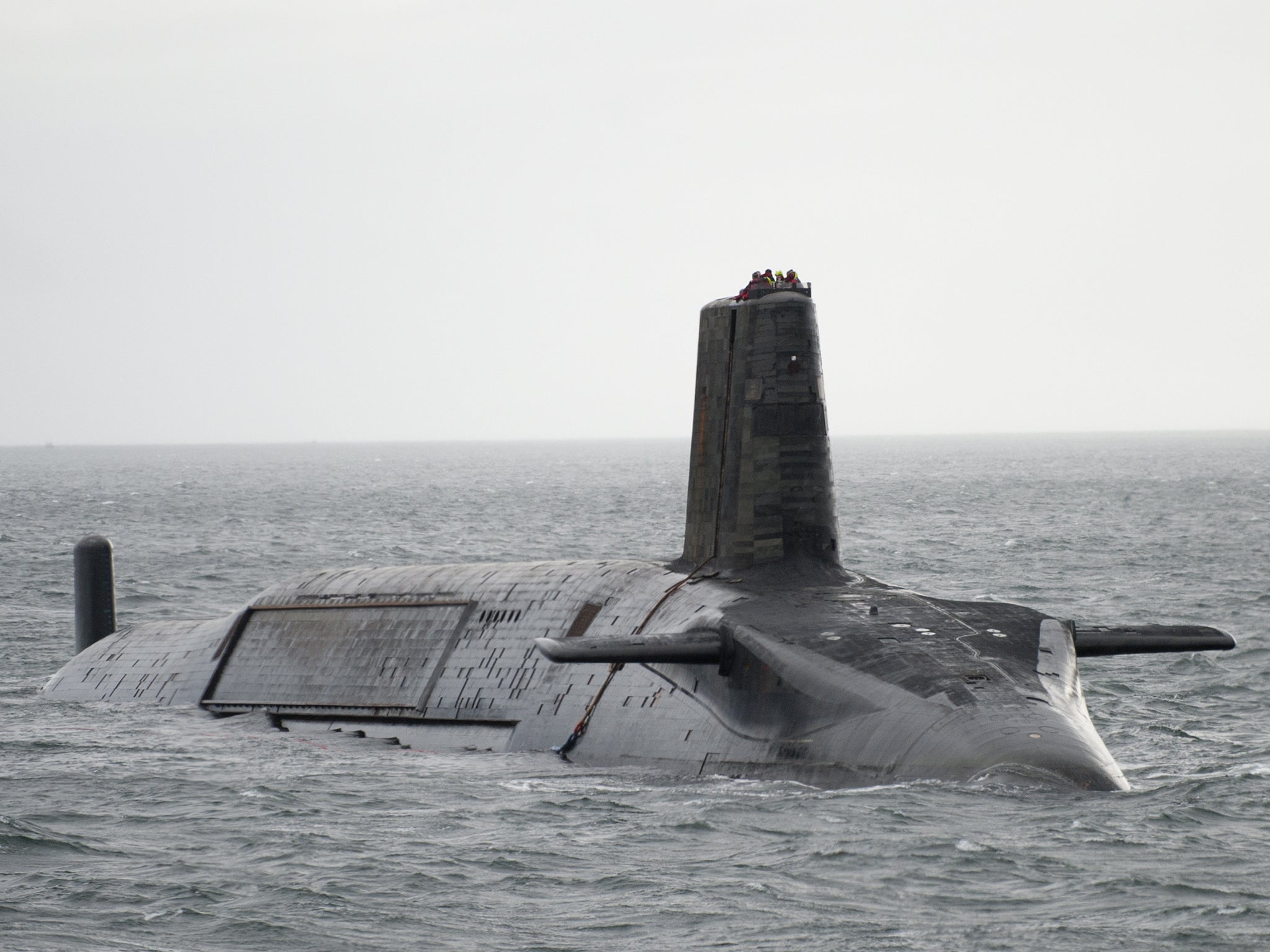Scotland could face domestic and international pressure to keep nuclear weapons for a generation even after independence
UK ministers have not done any substantial contingency planning in the event of a Yes vote

The Foreign Secretary has responded to MPs' calls for more information about what Scottish independence could mean for foreign policy by insisting that the nationalists must set out their own case.
The Commons Foreign Affairs Committee today criticised Whitehall for being too unresponsive to international calls for clarity about the potential implications of independence.
UK ministers frequently state that they will not pre-negotiate the terms of independence and that they have not done any substantial contingency planning in the event of a Yes vote.
But the UK government's confident assertion that Scotland will vote No is creating a problem for foreign partners, who are looking for a more "proactive political and diplomatic management of the situation", the Committee said.
William Hague said the UK government is compiling a series of analytical papers to inform the debate, but ultimately "it is for those advocating independence to set out a clear and well evidenced case to people in Scotland".
He said: "The Committee's report highlights that the Scottish Government has yet to present the facts of what Scottish independence would mean in practice for the people of Scotland, including the costs of establishing diplomatic and other networks.
"The Scottish Government continues to present unfounded assertions as incontrovertible facts and conclusions, when the truth of the matter is very different."
He added: "Unlike the Scottish Government, the UK Government has commissioned and published independent legal opinion on the constitutional and legal aspects of Scottish independence on February 11.
"This paper was the first in a series of evidential and analytical papers to be published this year and next, to inform the debate ahead of next year's referendum.
"However, as the Foreign Affairs Committee report notes, it is for those advocating independence to set out a clear and well evidenced case to people in Scotland about what the implications of leaving the UK would mean for them, including some of the unavoidable choices that will have to be made."
The Committee concluded that Scottish independence would "inevitably" damage the UK's international reputation.
They called on the Foreign Office to take action before the referendum to limit the potential impact.
"Witnesses did agree that the way in which the RUK (remainder of the UK) handled 'the business of the break-up' would significantly influence how much reputational damage and loss of prestige the RUK suffered internationally," the Committee said.
"We heard from a number of witnesses that proactive political and diplomatic management of the situation would be required to prevent objections arising from key states.
"Thus far, it is not clear that the UK is doing this, partly because it has chosen to state, as a policy position, that it is confident Scots will vote to stay as part of the UK.
The report adds: "The problem with this strategy from an international perspective, as Catarina Tully observed, is that 'countries are finding it difficult to assess their own response to independence since they are not getting much response from Whitehall'."
The Scottish Government has also been asked to provide more evidence for its assertions that Scotland will gain seamless membership of international organisations such the European Union and Nato without losing the UK's existing benefits.
Scotland could also face domestic and international pressure to keep nuclear weapons for a generation despite the SNP's commitment to disarm, according to the committee.
Committee chairman Richard Ottaway, Conservative MP for Croydon South, said: "No one is doubting that Scotland could be a fully-fledged member of the international community but there is a real and urgent need for more information about the risks and costs involved.
"It is not enough to hope and assert that things will go in Scotland's favour at an international level and that goodwill will be forthcoming.
"A full and candid debate on the international implications of Scottish independence is now needed so that Scottish voters have the full facts before them when they vote in the referendum."
Deputy First Minister Nicola Sturgeon said: "We have continued to press the UK Government to engage in constructive discussions and sharing of information prior to the referendum so that voters are as informed as possible about what happens next."
Scottish Secretary Michael Moore said: "The Scottish Government has set the clock ticking on the independence referendum.
"On issues such as the costs for establishing a diplomatic network, EU Membership, a currency union and on pensions the unanswered questions are mounting up and they are running out of time."
Subscribe to Independent Premium to bookmark this article
Want to bookmark your favourite articles and stories to read or reference later? Start your Independent Premium subscription today.

Join our commenting forum
Join thought-provoking conversations, follow other Independent readers and see their replies